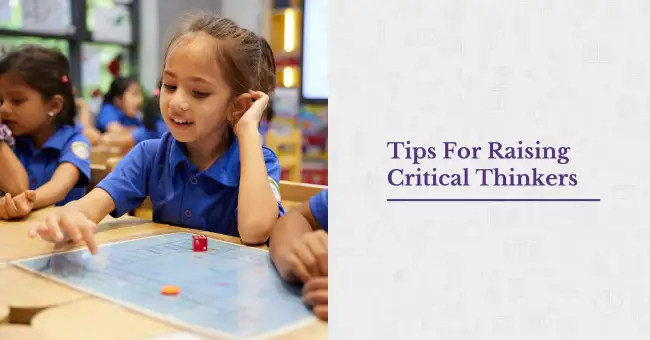
When these ‘peers’ turn into “friends”, it gives birth to a new world within them. “Mom! I made a new friend today”, says a shrill sound with twinkling eyes. As reassuring and joyous as this statement may sound, a part of us hopes that this journey is merry and lasts a lifetime. While they come home with stories of fun, laughter, joy and companionship, instances where they grumble about a missing pencil, a soiled shirt, a grabbed sandwich or about being teased - garners a sense of disquiet within us as parents.
With requests for play-dates, birthday parties and sleepovers with their ‘besties’, you witness the friendship blossoming. This then makes you ponder over their friend’s personal characteristics and family background. These assessments help you understand the extent to which your child is getting “influenced” by their friends. These influences could lead a child to be more assertive, trying new activities, getting more involved/ working harder at school. However, the same can cause them to indulge in unusual, risky behavior, feelings of struggle leading to stress and increasing pressure. Such symptoms may manifest at a young age and escalate to pounding levels if left undiagnosed and unattended.
Being irritable and upset about a disagreement is completely normal, however, it is a concerning factor if the frequency and intensity of such episodes rise. While it is normal for an episode to occur once/twice a week, it can be a matter of concern if one occurs almost every alternate day. Moreover, the meltdown may last up to an hour or two as opposed to the former 15-20 minutes. Few warning signs are enumerated below:

- Tearfulness
- Unusual aggression/ agitation
- Difficulty falling asleep
- Loss of appetite or over-eating
- Reluctance to go to school
- Withdrawal from activities they usually enjoy
- Appears aloof and preoccupied
(Although “peer pressure” could be one of the causes, the same may manifest due to several other reasons too)
Few alterations in the way we as parents communicate our expectations towards kids will go a long way in teaching them how to deal with peer pressure. Some of them are:
- Accepting no as an answer: Often as parents, we expect certain rules to be followed even though they seem illogical to the young lads. Such an imposition since childhood will lead them to follow the herd even though they carry unsettled contentions. As much as social conformity is an important trait, social coercion can be extremely damaging.
- Model assertiveness: Each time you have to refuse your child’s demand, it will be well accepted by them if you avoid a condescending tone (by saying-“because I said so”) and instead present logical reasoning for refusing. This would upset them for a while but will certainly teach them the art of saying ‘no’ in the face of disagreement.
- Build resilience: When they see you strong while dealing with a challenging situation, they are more likely to ward off the pressure of any kind. The ability to see the light at the end of a tunnel is best learned when they see their parents practicing it first-hand.
- Seek support: One of the several ways to handling any form of turbulence is not only by battling it all alone but also by seeking support from people you trust. It is a good idea to share your troubles with family time and again. Such a practice would set a precedent for the kids to share stories of their own hardships.
While the whole world harps on the importance of a child’s IQ in order to succeed in life, as a psychologist, I choose to disagree. Research advocates the significance of the following intelligence in order to make your child live a more fulfilling life, they are:
- Emotional Quotient (EQ): Ability to recognize and manage one’s own emotions.
- Social Quotient (SQ): Ability to recognize and manage Other’s emotions.
- Change Quotient (CQ): Ability to recognize, understand, accept and master a Change.

In conclusion, it can be said that in order to cook a smooth transition for your child, you would need lots of EQ that is assimilated with an equal amount of SQ, CQ being the essential ingredient like salt/sugar and all of this garnished with some amount of IQ. Therefore, we must gauge our child’s preparedness in each of this intelligence and invest in their ability to improve upon the same. These abilities can be assessed using several online psychometric tools or by consulting a trained Psychologist. Such a holistic approach would lead them to paint their horizons with bright colors and those of significant others (peers) too in order to beautify their canvas of‘Life’.
“Every new friend is a new adventure...the start of more memories” - Patrick Lindsay
Contributed by Ms. Sheetal Racherla Shetty,
School Counsellor JBCN Oshiwara.





